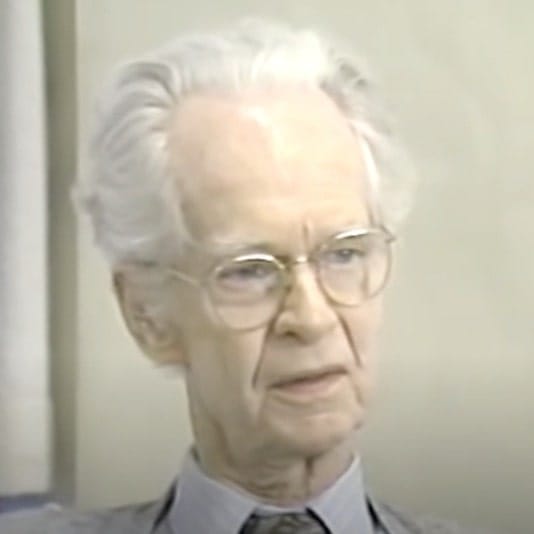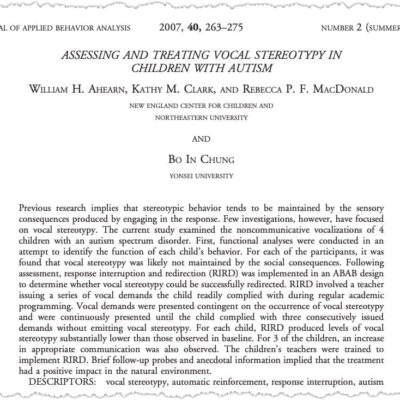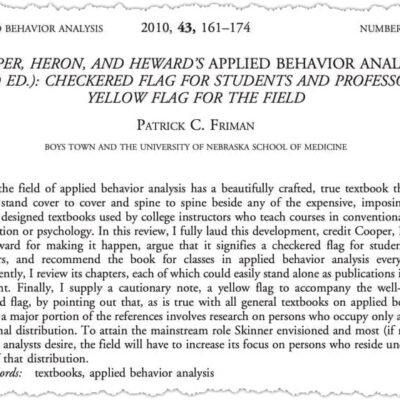B.F. Skinner on Behaviorism and Verbal Behavior
$19.99
BCBA CEUs: 2 CEUs
In this interview conducted by Eve Segal in 1988, B.F. Skinner discusses the evolution of verbal behavior, emphasizing its role in understanding the mind and human behavior. He argues against introspection and cognitive psychology, advocating for behaviorism’s focus on environmental influences.
Brand: CEUniverse
Description
In this 1988 interview between Eve Segal and B.F. Skinner, the discussion revolves around Skinner’s significant contributions to understanding verbal behavior and its implications on human understanding and psychology. Skinner’s work, particularly his book “Verbal Behavior,” is highlighted as a pivotal theoretical contribution to 20th-century science, paralleling the impact of empirical philosophies. Skinner articulates that verbal behavior precedes the concept of the mind, arguing that language allows humans to reflect on their actions and feelings. This reflection is a critical step in understanding human behavior.
Skinner elaborates on his monistic view, suggesting that thinking and behaving are essentially the same process, influenced by genetic and environmental histories. He emphasizes that behavior is not an internal process but a reaction to external stimuli shaped by past experiences and environmental factors. This perspective challenges traditional psychology, which often views behavior as a byproduct of inner cognitive processes.
The dialogue explores the notion of choice, responsibility, and the role of reinforcement in shaping behavior. Skinner asserts that behavior is a result of biochemical processes and environmental histories rather than autonomous decision-making. He critiques introspection and cognitive psychology, advocating for a focus on observable behavior and environmental influences.
In discussing verbal behavior, Skinner distinguishes it from nonverbal behavior through the nature of reinforcement, emphasizing that verbal actions are mediated by social interactions. He addresses the complexity of language acquisition, positing that humans are unique in their ability to develop a verbal culture. The conversation touches on the potential for teaching verbal behavior to nonhuman species, acknowledging limitations based on species-specific capabilities and the intricacies of human language.
Skinner’s insights reveal a dedication to understanding behavior through empirical methods, challenging traditional views on cognition and introspection. His work underscores the importance of environmental factors in shaping behavior, advocating for behavior-based therapies and educational systems to enhance learning and personal development. Overall, the interview encapsulates Skinner’s profound impact on the field of psychology and his enduring legacy in behaviorism.
Preview
Below is the entire non-interactive version of this video. It does not contain embedded questions or completion tracking like the CEU version of the module.
You may also like…
-
Multimedia Tutorial

8 BCBA CEUs
An Introduction to Verbal Behavior
Norman Peterson4.24 out of 5(306)$79.99 Add to Cart Quick View -
Multimedia Tutorial

7 BCBA CEUs
An Introduction to Relational Frame Theory (RFT)
Eric J. Fox4.55 out of 5(502)$69.99 Add to Cart Quick View -
BundleSale!

3 Total BCBA CEUs
3 Supervision CEUsSolar Bundle
$29.97Original price was: $29.97.$22.47Current price is: $22.47. Add to Cart Quick View
Related products
-
Article Quiz

1 BCBA CEU
Assessing and Treating Vocal Stereotypy in Children with Autism
William H. Ahearn, Kathy M. Clark, Rebecca P. F. MacDonald, & Bo In Chung4.56 out of 5(50)$9.99 Add to Cart Quick View -
Article Quiz

1.5 BCBA CEUs
Cooper, Heron, and Heward’s Applied Behavior Analysis (2nd ed.): Checkered Flag for Students and Professors, Yellow Flag for the Field
Patrick C. Friman4.44 out of 5(16)$14.99 Add to Cart Quick View -
Article Quiz

1 BCBA CEU
Reducing Biases in Clinical Judgment with Single-Subject Treatment Design
Daniel J. Moran & Wendi Tai4.08 out of 5(13)$9.99 Add to Cart Quick View











Reviews
There are no reviews yet